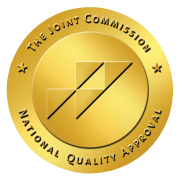What Is Avoidant Personality Disorder?
Today we’re delving into the enigmatic realm of Avoidant Personality Disorder (AvPD). Picture this: chronic feelings of social anxiety and fearful thinking swirling around, wreaking havoc in all corners of an individual’s life. Sound familiar? Let’s dive in to understand the ins and outs of AvPD truly.
AvPD is like an uninvited guest, affecting every aspect of a person’s existence, from the mundane to the profound. Social fears are its specialty, with added aspects of low self-esteem, inadequate feelings, and a strong sensitivity to criticism. It thrives on the fear of shame, becoming a master at whispering doubts and insecurities into the ears of its victims. As a result, those dealing with AvPD will avoid social settings as much as possible.
Main Features of AvPD
AvPD tends to start early – it might creep into childhood, but it usually takes center stage by adulthood. According to those studying the human psyche, AvPD shows its true colors when four or more of its main symptoms emerge in early adulthood.
AvPD symptoms can lead to severe social isolation and interference with relationships. If you have AvPD, your social fears come from low self-esteem, such as inadequacy and sensitivity to criticism. As a result, you might avoid social interactions, new activities, and interpersonal connections.
Symptoms of Avoidant Personality Disorder
As stated before, AvPD can become noticeable in childhood, but most personality disorders aren’t usually diagnosed until a person is at least 18 years old. According to the DSM-V, people with AvPD will experience four or more of the following symptoms by early adulthood:
- Avoids work tasks that involve social interaction due to fears of criticism or rejection
- Unwilling to get involved with people unless they are sure of being liked
- Refrains from intimate relationships due to the fear of being shamed
- Preoccupied with being criticized in everyday social situations
- Shows inhibition in new interpersonal situations because they feel inadequate
- Views themselves as socially inept or inferior to others
- Unwilling to participate in new activities that might lead to feelings of embarrassment
How AvPD Affects an Individual’s Life
A person with avoidant personality disorder has difficulty functioning in everyday life, which can limit success, learning, and new relationships. AvPD can manifest in your life in the following ways:
- Daily life: If you have AvPD, you might avoid everyday social interactions and any activities that involve interacting with others.
- Relationships: Someone with AvPD struggles to make new friendships or relationships. They might frequently decline invitations to events. As a result of having trouble communicating, maintaining close relationships can also be challenging.
- Overall well-being: Avoidant personality disorder can affect an individual’s ability to grow and learn. They might avoid taking a class because they fear receiving negative feedback. In the workplace, one might decline a promotion because they feel unworthy.
Treatment Options for Avoidant Personality Disorder
As difficult as avoidant personality disorder can be, there is hope in therapies like CBT, DBT, and acceptance and commitment therapy. Medications—antidepressants, mood stabilizers, and antipsychotics—are also effective in helping manage the anxiety and depression that often comes with AvPD.
Therapy
- Cognitive-behavioral therapy (CBT)
- Dialectical-behavioral therapy (DBT)
- Acceptance and commitment therapy (ACT)
Medication
While no medications are prescribed specifically for AvPD, antidepressants, certain mood stabilizers, and antipsychotics can help reduce anxiety symptoms. Examples include paroxetine, sertraline, and gabapentin.
Getting Help with Avoidant Personality Disorder in Newport Beach
So, if you or someone you hold dear finds themselves managing Avoidant Personality Disorder, take heart! With understanding, support, and a help from a mental health facility Newport Beach like Lido Wellness Center, one can learn to manage the shadows of AvPD and embrace a life of connection and self-acceptance. Want to talk more? Call us at: 949-541-8466.




